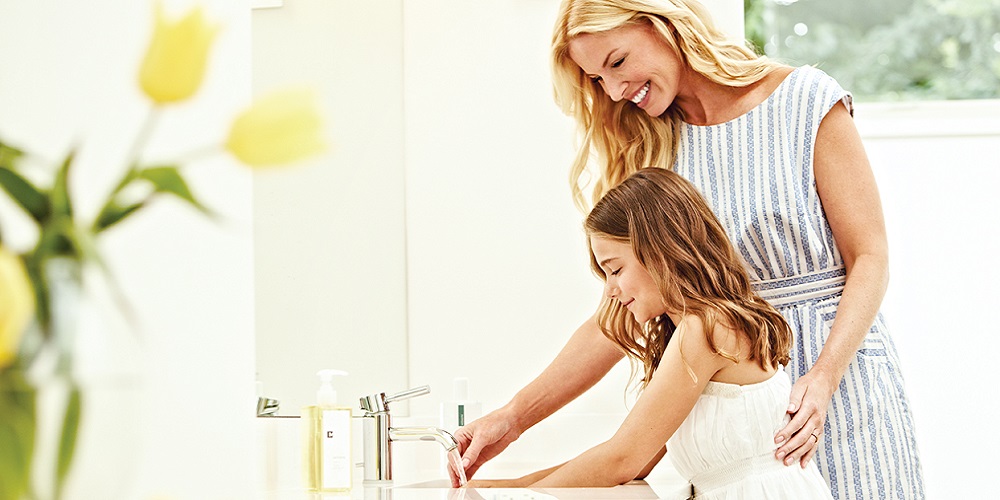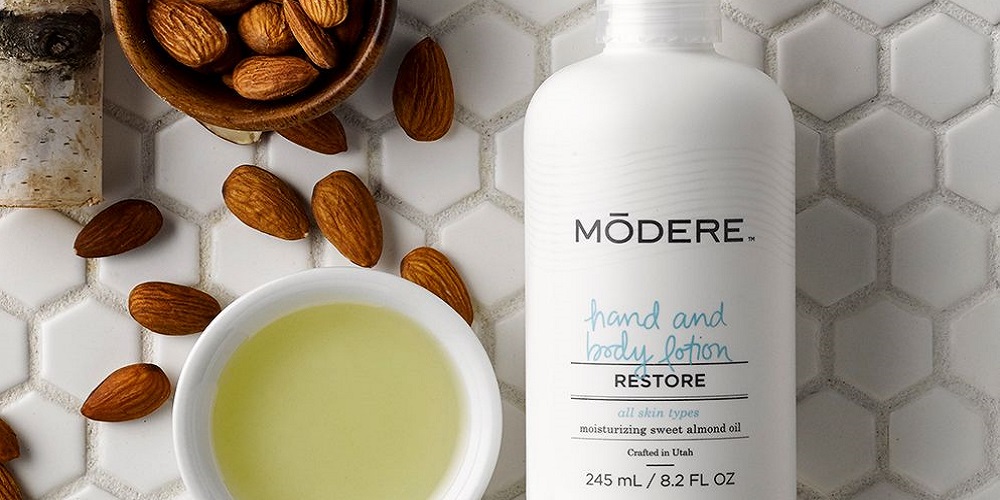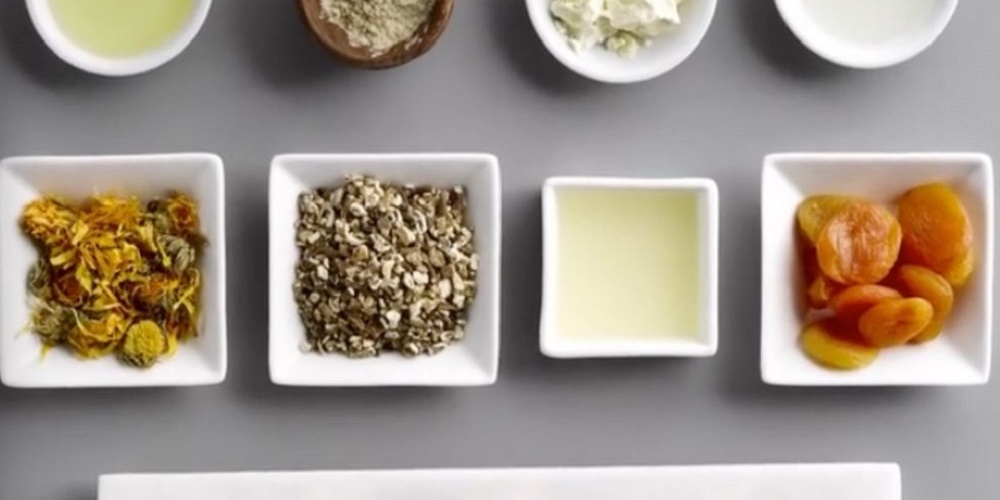When it comes to our appearance, many of us place a high value on our hair. It’s one of the first things people notice and it can have a big impact on our confidence, so it’s no wonder that styling products, heated tools and visits to the salon are a common expense. But did you know that hair that looks and feels healthy starts at the scalp? We’ll be discussing the importance of scalp care for your hair, from using the right products to incorporating certain tools in your routine. We’ll also dive into everything you need to know to maintain visibly healthy hair, including the importance of your diet and lifestyle. So, whether your strands are fine or voluminous, straight, curly or coarse, long or short, keep reading to learn how to achieve your best hair yet.
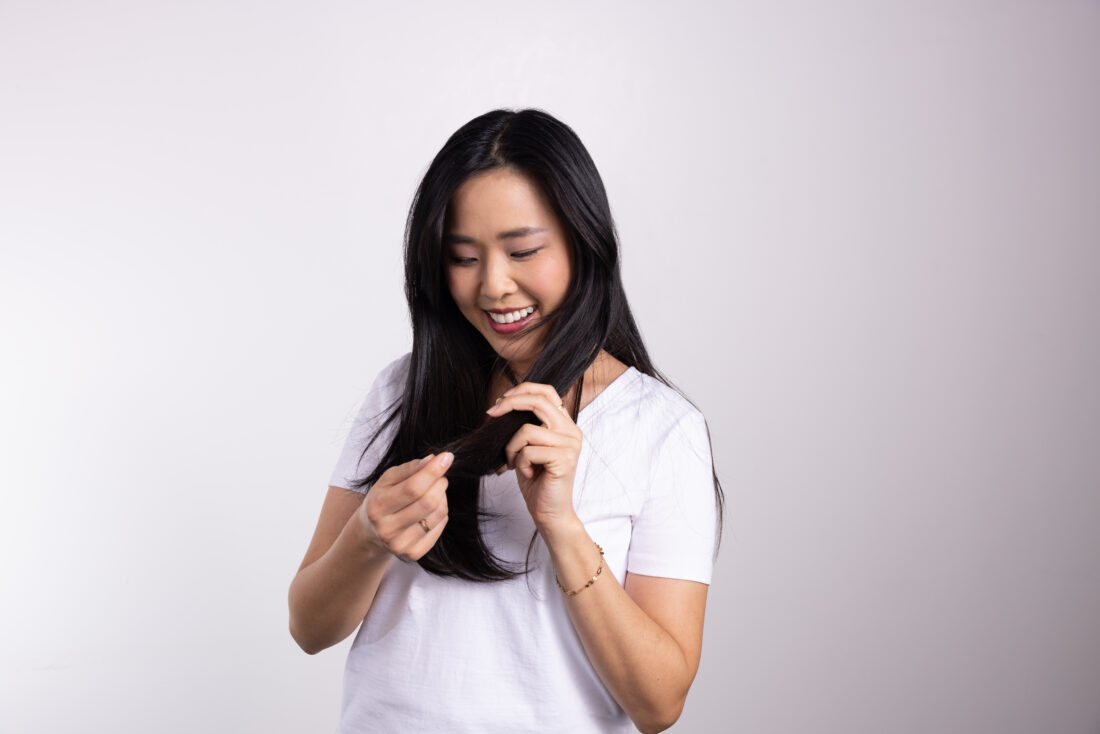
Your scalp: the foundation for visibly healthy hair
The scalp is not only the skin that covers your head, it is the foundation for visibly healthy hair. Your scalp needs to be nurtured for your hair to maintain its strength and shine. Put it this way – if your scalp isn’t looking healthy, your hair won’t be either.
One way to maintain your scalp is by exfoliating regularly. Just like the rest of your skin, your scalp can accumulate dead skin cells and debris. This can clog hair follicles. Exfoliating your scalp once a week can help remove these impurities. Massaging your scalp gently while washing your hair can improve blood flow and further help to loosen any dirt and oil build-up that you can rinse away.
It is also important to keep the scalp clean and hydrated by using products that are free of harsh chemicals. Look for products that contain ingredients such as glucose, collagen, and B vitamins that can help to soothe and nourish your scalp, without stripping hair of its natural oils.
Do you know what’s in your hair products?
The hair care industry is a multi-billion-dollar business offering an endless range of products that promise to help us achieve luscious locks. But how many times have you applied a new product to your hair and scalp only concerned about the results, without thinking twice about the ingredients in it? – I’m sure we are all guilty of this one. When it comes to hair products, it’s important to know what you’re putting on your scalp and hair.
Many commercial hair products contain harsh chemicals like sulfates, parabens, and synthetic fragrances. These chemicals can strip the hair and scalp of natural oils, leaving strands dry, brittle, and prone to breakage. Additionally, some hair products can cause allergic reactions, leading to scalp irritation, itchiness, and redness.
So, what’s the solution? When choosing hair products, look for clean beauty options that are free of controversial ingredients like sulfates and parabens. These products are less likely to cause irritation and will help keep your hair and scalp visibly healthy. Look for products that include botanical extracts to nourish and protect your hair and scalp. It’s also important to note that not all “natural” hair products are created equal. Using effective, science-backed products will not only improve your hair and scalp but may pay off even more over time.
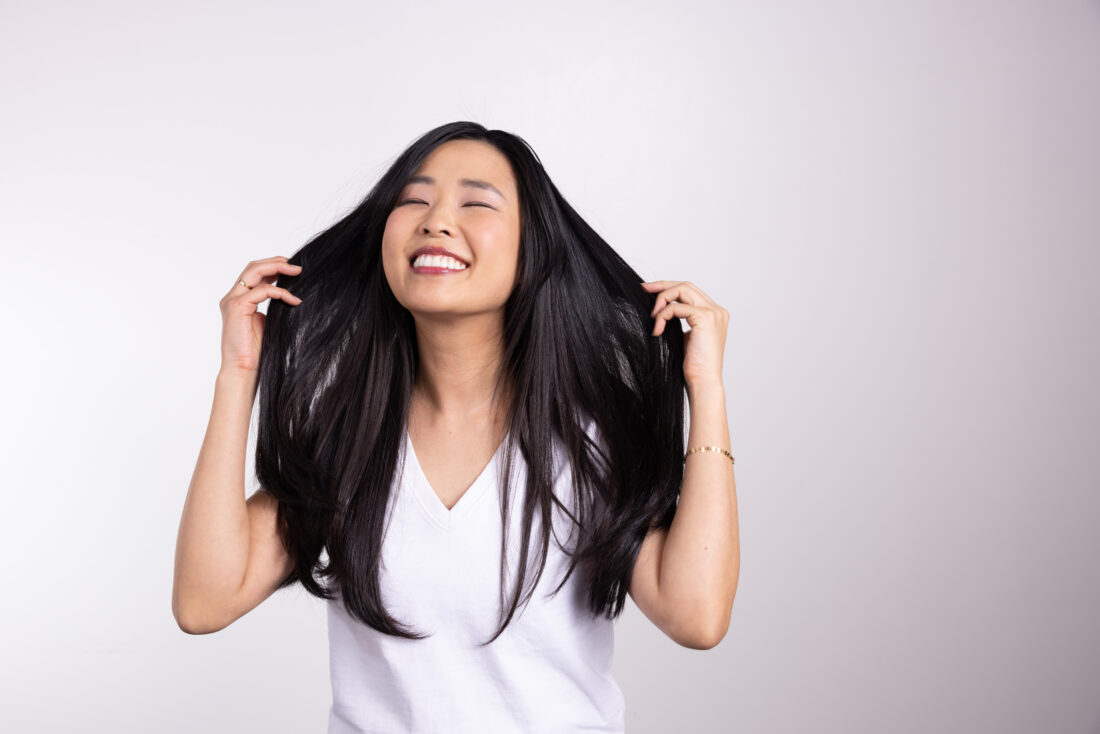
Tools for a healthy scalp and hair
While choosing clean hair products is important for maintaining your hair, there are also tools you can use to improve your visible hair health. Here are our favourite tools to consider adding to your hair care routine:
- Scalp Massager: Help improve blood flow to your scalp to promote hair growth and a healthy scalp. Use a scalp massager when washing your hair to help massage and cleanse your scalp.
- Wide-Tooth Comb: A gentle way to detangle your hair without causing breakage, a wide-tooth comb is especially helpful for those with curly or textured hair. Use a wide-tooth comb in the shower after applying conditioner, so that it glides through strands to detangle without tugging or pulling on knots.
- Microfibre Hair Towel: Regular towels can be rough on your hair, causing it to break and become frizzy. Using a microfibre hair towel instead of a regular terry towel can help prevent damage and breakage. Microfibre is also gentler on the hair and can help reduce drying time.
- Boar Bristle Brush: A boar bristle brush can help to evenly distribute your hair’s natural oils, keeping your hair moisturized and shiny. It can also help to detangle hair without causing breakage. Use it to brush your clean, dry hair from the roots to the ends, focusing on the areas that tend to get oily.
- Silk Pillowcase: Natural silk fibres are gentler on your hair than cotton, which can cause friction and breakage. Sleeping on a silk pillowcase can help keep your hair smooth and reduce frizz.
MODERE TIP: Avoid using hot water on your hair, as it can strip the scalp of its natural oils, leaving it dry and itchy.
Holistic haircare: everything starts in your gut
When it comes to your hair and scalp, a holistic approach is ideal. This means giving equal focus to the internal as well as the external. I’m sure you’ve heard it all before — when it comes to the body, everything starts in the gut. And because gut health plays such a vital role in nutrition, an unhealthy gut can affect hair health.
- Eating a balanced diet:
A balanced diet that is rich in vitamins, minerals, and antioxidants is not only beneficial to the gut, but can help promote healthy hair growth in a number of ways.
Firstly, the nutrients found in a balanced diet are essential for healthy hair growth. For example, biotin, a B vitamin found in foods such as nuts and eggs, is important when it comes to producing keratin, the main component of hair. Other nutrients such as vitamin C, iron, and zinc are also important for hair health, as they help to prevent hair breakage, promote scalp health, and support hair growth.
In addition, a diet high in antioxidants can help to protect hair follicles from oxidative stress. Oxidative stress occurs when there is an imbalance of free radicals and antioxidants in the body, which can affect the scalp and may contribute to hair damage. Foods such as berries, leafy greens, and nuts are high in antioxidants and can help to protect hair follicles from damage.
Furthermore, a balanced diet that is rich in fibre can also promote gut health, which is important for healthy hair growth. Fibre helps to promote the growth of good bacteria in the gut. This can help to improve the health of your gut and support nutrient absorption.
- Probiotics:
As well as eating a healthy diet, taking a probiotic supplement can also help promote hair health.
Probiotics support gut health by balancing the levels of good and bad bacteria in the digestive tract. This is important because the health of our gut microbiome is directly linked to our overall health and well-being. When the gut is in a state of imbalance, it can negatively affect health. Probiotics support a healthy gut by supporting a healthy gut microbiome.
In addition, probiotics aid in the absorption of nutrients and vitamins. These nutrients are necessary for your overall health and the growth and maintenance of your hair. By supporting nutrient absorption, probiotics can optimize the absorption of important vitamins and minerals utilized by the body.
- Hydration:
Water is essential for maintaining adequate moisture levels in the scalp and hair.
When the body is dehydrated, it diverts water away from non-essential organs and tissues, including the hair follicles. This can lead to decreased hair growth and weakened hair shafts, making the hair more prone to breakage and fallout. By staying hydrated, you can help to maintain healthy moisture levels in the scalp and hair, which can help to prevent dryness, breakage, and other scalp and hair problems.
Water is also necessary for the body to produce sebum, a natural oil that is essential for healthy hair growth. Sebum is produced by the sebaceous glands in the scalp and helps to moisturize and protect the hair. When the body is dehydrated, the sebaceous glands may produce less sebum, which can lead to dry, brittle hair that is more prone to breakage.
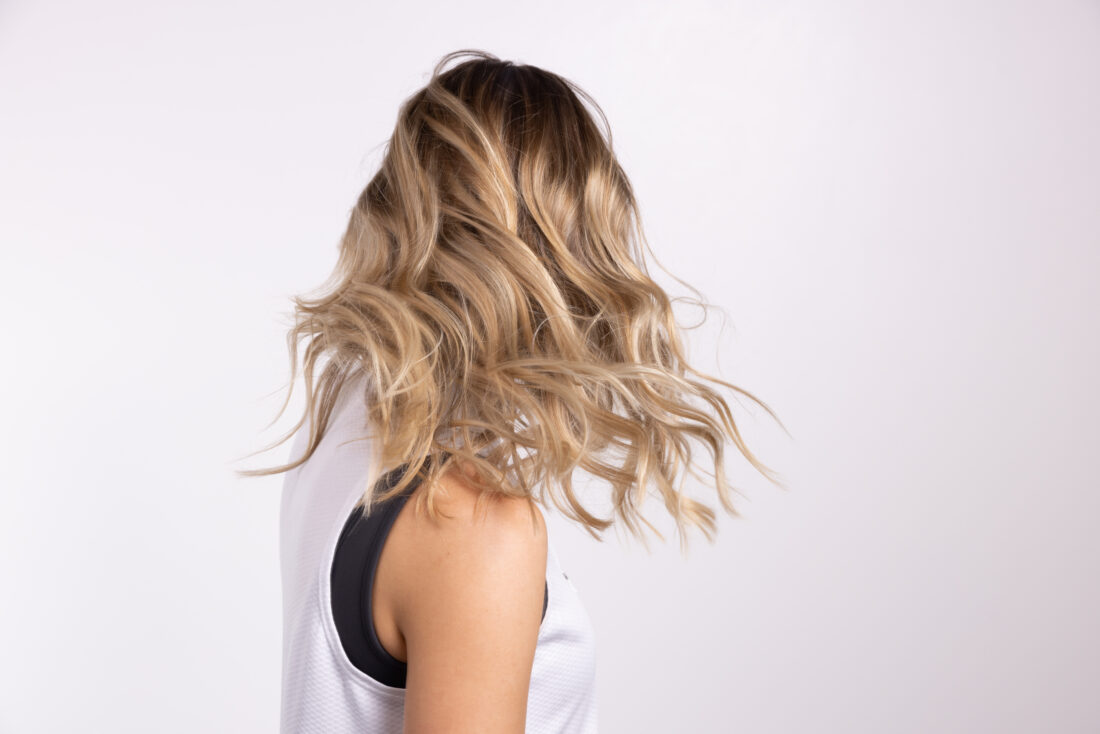
In conclusion, maintaining healthier looking hair may not always be easy, but it’s certainly worth the effort. Achieving hair that looks and feels healthy is a multi-faceted process that requires attention to various factors. Starting with the scalp, we can build a foundation for strong, beautiful hair. Understanding what’s in our hair products is also important, as some ingredients can have negative effects on our hair. But it’s not just about the products we use — our choice of tools such as brushes, combs, and pillowcases can also harm or help our hair. And finally, it’s important to remember that everything starts in the gut. By nourishing our bodies with a healthy, balanced diet, we can promote healthy hair from the inside out. By following these tips and tricks, you can work towards achieving the luscious locks you’ve always dreamed of.
For information purposes only and is not intended to replace the advice of a health care or hair loss professional. If you have concerns related to your hair, please seek the advice of a health professional.


